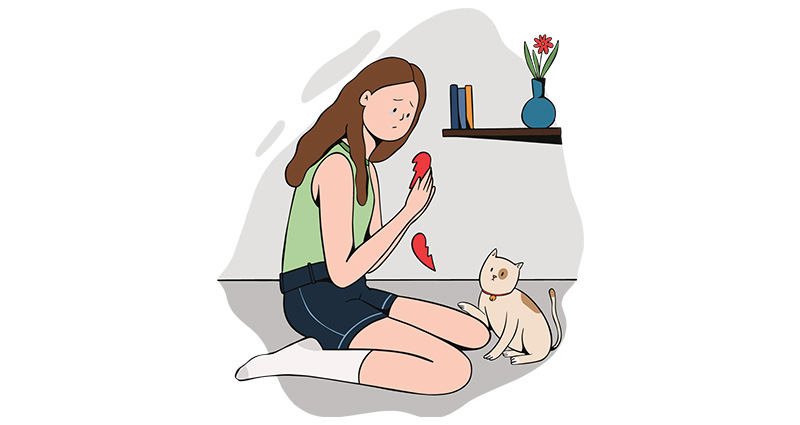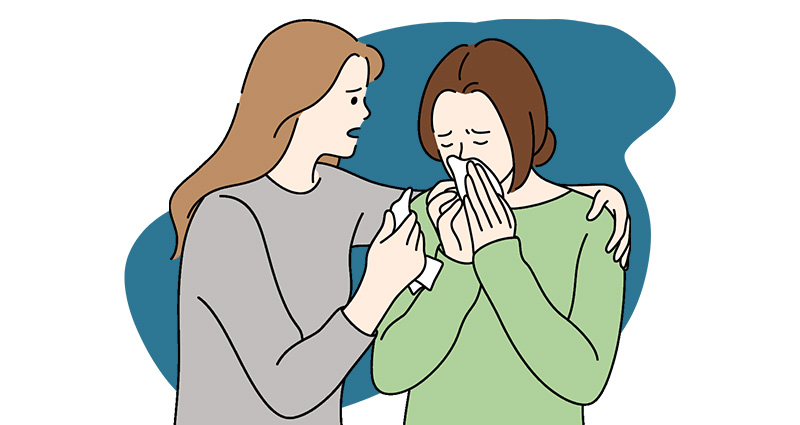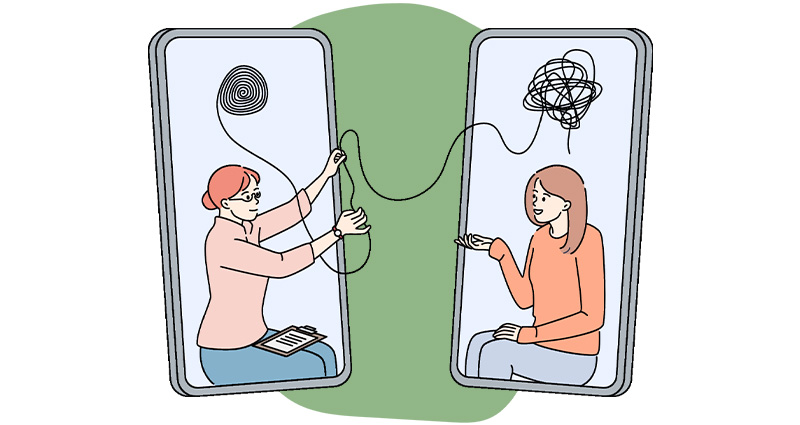For Teens, Breaking Up Is Hard to Do

When it’s your first, how do you know the heartbreak will lessen?
Relationship problems contributed to nearly 70% of the teen suicides in Arizona in 2021, according to the Arizona Department of Health Services.
That statistic includes relationships with parents, family members, friends, and significant others. But, romantic breakups are a major contributing factor to some teen suicides.
In fact, relationships are the third-most common issue teens call/text Teen Lifeline’s hotline about.
It can be easy for adults to dismiss the feelings of a teen going through their first heartbreak. With maturity and experience, we know these feelings will pass and that a broken heart likely won’t last forever.
But think back to your first broken heart. Do you remember the feelings of sadness, anger, despair, or loneliness?
Teens don’t have the benefit of prior experience. For most, this is the first time they’ll have had these feelings. They don’t know the feelings will lessen. They don’t know things will get better—which means, they’ll need support.
Teens don’t have the benefit of prior experience…. They don’t know things will get better—which means, they’ll need support.
How to Help Teens Through a Breakup
Follow these dos and don’ts to help a teen through their first breakup, or any significant breakup:

Do be a good listener. Let the teen talk about how they are feeling. Really listen and then validate what they are saying. What they are going through is difficult. Try saying things like: “I know this is hard,” or “It’s sad when an important relationship ends.”
Don’t trivialize your teen’s feelings. Avoid statements like, “This isn’t that big of a deal,” or “High school relationships don’t usually work out anyway.” Attempts to minimize grief or rationalize it away are likely to leave the teen feeling alone and unheard.
Don’t criticize a teen’s ex. Criticizing a teen’s ex, saying, “I told you so,” or using placating statements like, “You can do better,” are rarely helpful. And, you don’t want to be stuck in an awkward situation if the teens later decide to reconcile.

Do provide distractions. Take the teen to a movie, sporting event, shopping, or to a favorite restaurant. Schedule favorite activities throughout the day or work together on an enjoyable project. Distractions can be helpful in the initial days after a breakup.
Do give the teen hope for the future. The grieving process is important for healing. But make sure the teen knows they won’t feel this way forever.
Do encourage normal routines. After the teen has had several days to grieve, encourage them to begin returning to their regular activities, like homework, chores, family outings, and extracurricular activities.

Do talk about social media. Talk to the teen about how to respectfully handle a breakup on social media. Remind them to avoid posting anything they may later regret. At the same time, be ready to help the teen cope with feelings that could result from an ex who is less respectful in how they publicly handle the breakup.
Do seek help if needed. After a few days of heartache, the teen’s emotions will likely begin to calm down, only to resurface again. This roller coaster of emotions is normal. But after a few of these phases, a teen’s emotions should begin to level out for good. If your teen struggles for more than a few weeks, or if you notice signs of depression, eating problems, or sleeping too much or too little, it may be a good idea to seek professional intervention.
Teens can call Teen Lifeline 24/7/365 at (602) 248-TEEN (8336) or (800) 248-TEEN for free and confidential help.
Teens can also text the hotline at (602) 248-8336 between the hours of noon and 9 p.m. on weekdays and 3 p.m. and 9 p.m. on weekends.
The author of this article, Nikki Kontz, LMSW, is the Clinical Director at Teen Lifeline, a Phoenix-based nonprofit dedicated to preventing teen suicide in Arizona. Contact her at nikki@teenlifeline.org or 602-248-8337.
This article was originally published in the February 2022 print edition of The Arizona Republic as part of a monthly column where Teen Lifeline discusses important youth mental health topics. To read Teen Lifeline’s most recent column pieces, please refer to the print edition of The Arizona Republic.
